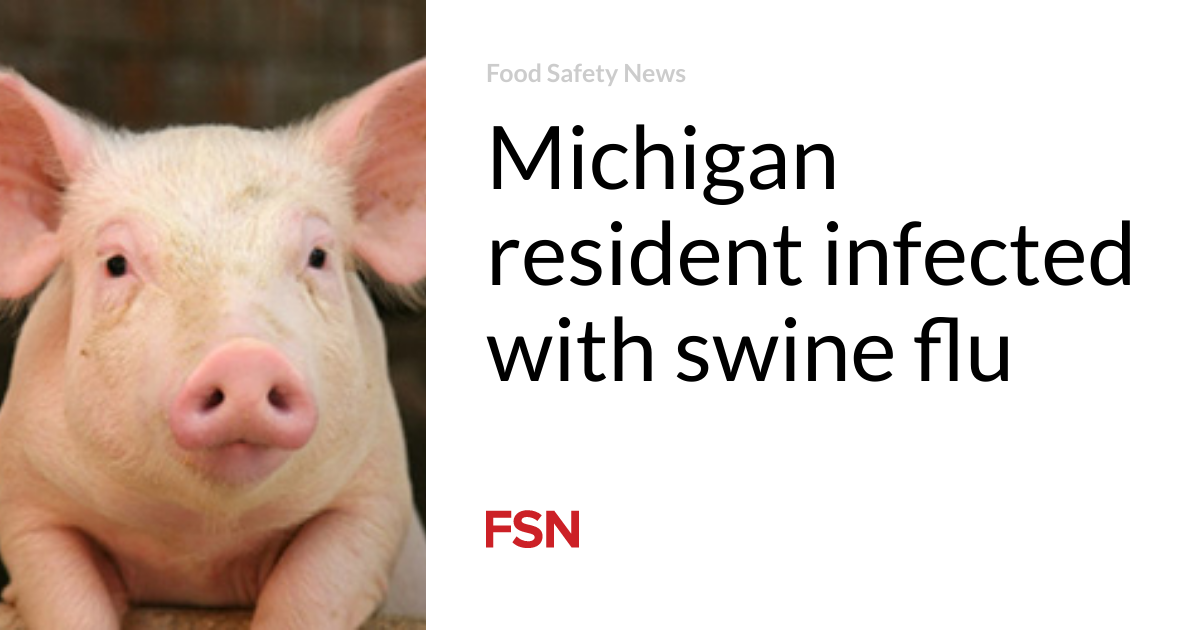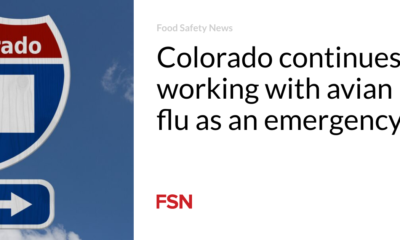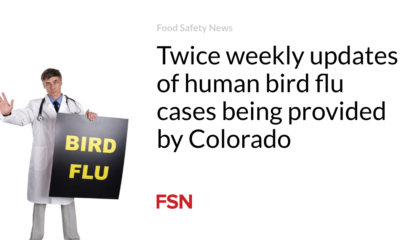Food
Michigan resident infected with swine flu

Just when everyone was looking for bird flu (H5N1), the Michigan Department of Health and Human Services (MDHHS) went into action over the weekend reporting a human case of swine flu, influenza A H3N2 variant (H3N2v).
The identification of an Ingham County resident was made with the Ingham County Health Department.
“Influenza A H3N2v is distinct from the highly pathogenic avian influenza A (H5N1) that has recently impacted dairy and poultry farms. Influenza A H3N2v is commonly associated with pigs, although the source of this individual’s exposure remains under investigation,” MDHHS reported.
The two health concerns said the individual tested positive for influenza A H3N2v in late July. The sample was forwarded to the MDHHS Bureau of Laboratories for enhanced influenza virus sequencing monitoring as part of the Centers for Disease Control and Prevention’s Emerging Infections Programwhere it again tested presumptive positive for influenza A H3N2, which was later confirmed by the Centers for Disease Control and Prevention.
“While we believe this is an isolated case, Michigan residents should watch for flu-like symptoms: fever, respiratory symptoms such as cough and runny nose, and body aches,” said Dr. Natasha Bagdasarian, the state’s chief medical director. “If you have these symptoms, we recommend that you take a test for flu and COVID-19.
At-home COVID-19 tests are widely available, and both flu and COVID-19 tests are available at many pharmacies, urgent care centers, and clinics. Regardless of test results, sick people should stay home until they recover.
“While our partners continue to investigate this case, the Michigan Department of Agriculture and Rural Development stands ready to assist if links are made to a sick animal,” said Tim Boring, director of the Michigan Department of Agriculture and Rural Development. “As part of our state’s One Health approach, our agencies are committed to joint action to protect both animal and public health.”
Emergency room visits for flu in Michigan are currently lowand MDHHS expects that the risks of influenza A H3N2v to the general public are low.
Although the infection was not related to known exposure to pigs or other animals, MDHHS reiterates precautions the public can take to prevent possible exposure on farms, fairs and exhibits:
• Do not eat or drink in livestock stables or show rings.
• Do not bring toys, pacifiers, cups, baby bottles, strollers or similar items into the pig enclosures.
• Anyone who is at high risk for serious flu complications and plans to attend a trade show should avoid pigs and piggeries.
• Wash hands often with soap and water. If soap and water are not available, use an alcohol-based hand sanitizer.
• Avoid touching your eyes, nose and mouth. Germs spread this way.
Although most people recover from flu, including illnesses from variant viruses such as H3N2v, these infections can sometimes cause serious illness even in healthy people. If someone is experiencing respiratory symptoms, they should share any recent exposure to livestock with their doctor so testing for influenza can be considered. The same antiviral drugs used to treat seasonal flu can be used to treat H3N2v in children and adults. These treatments are most effective when taken early in the disease.
(Click here to sign up for a free subscription to Food Safety News.)













